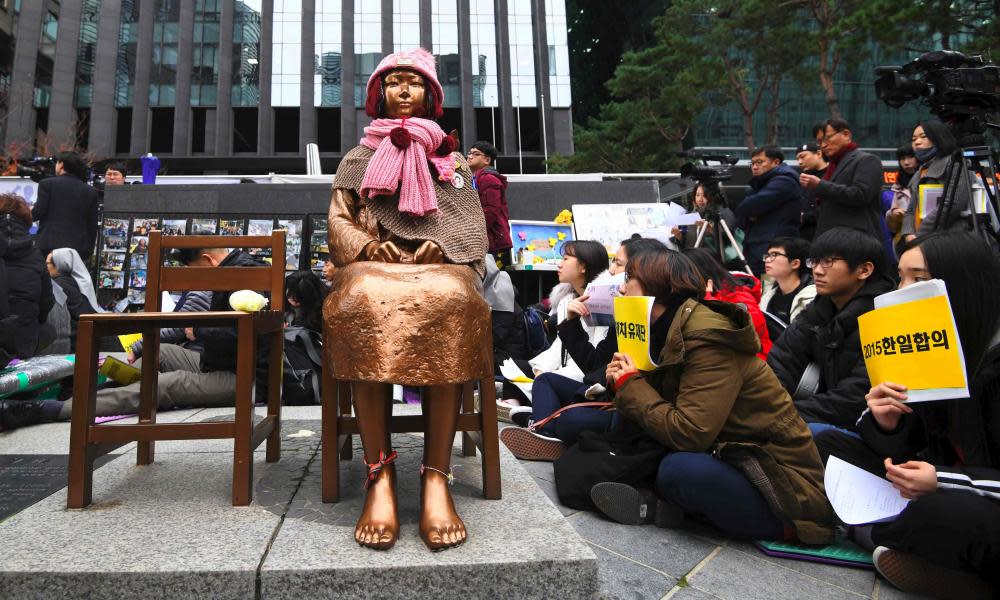Anger in Japan as South Korea dissolves 'comfort women' foundation

South Korea has announced it will dissolve a Japanese-funded foundation to support former victims of wartime sexual slavery, sparking outrage in Tokyo and marking the latest deterioration between the two countries.
Japan’s prime minister, Shinzo Abe, said the move risked damaging relations and foreign minister Taro Kono called the decision “unacceptable”.
“If international pledges are broken then forging ties between countries becomes impossible and as a member of the international community we urge South Korea to act responsibly,” Abe told reporters.
The foreign ministry in Tokyo summoned the South Korean ambassador to explain the move.
Relations between the two neighbours are already strained after a South Korean court ordered a Japanese company to pay compensation for wartime labour. Bilateral ties have continued to deteriorate under South Korean president Moon Jae-in, who has focused on improving relations with North Korea and sees Japan as a potential obstacle.
Shutting down the centre effectively dissolves a 2015 agreement between Japan and South Korea that was meant to settle the longstanding issue of women having been forced to work in brothels used by the Japanese military during the second world war.
As part of the pact, Abe offered his “most sincere apologies” and the two sides agreed to “finally and irreversibly” resolve the issue of “comfort women”, a common euphemism for the victims.
Japan contributed about US$9m to establish a foundation to support surviving victims and their families. About US$3.9m has already been paid to 34 surviving victims and 58 families of deceased victims, according to South Korea’s Yonhap news. The government has not decided what to do with the remaining funds but plans to consult various civic groups and the Japanese government.
South Korea said the foundation did not sufficiently reflect the opinions of the women. In announcing the decision, Seoul’s ministry of gender equality and family, which managed the foundation, said: “We will try our best in setting up policies to recover the honor and dignity of the victims. We have … decided to end the project based on the result of our reviews and current circumstances around the foundation.”
Only 27 of the victims are still alive, out of a total of 240 who were registered with the South Korean government. Campaigners say as many as 200,000 women – mostly Koreans, but also Chinese, south-east Asians and a small number of Japanese and Europeans – were forced or tricked into working in military brothels between 1932 and Japan’s defeat in 1945.

 Yahoo News
Yahoo News 
